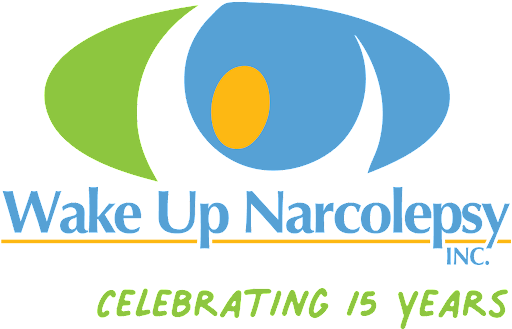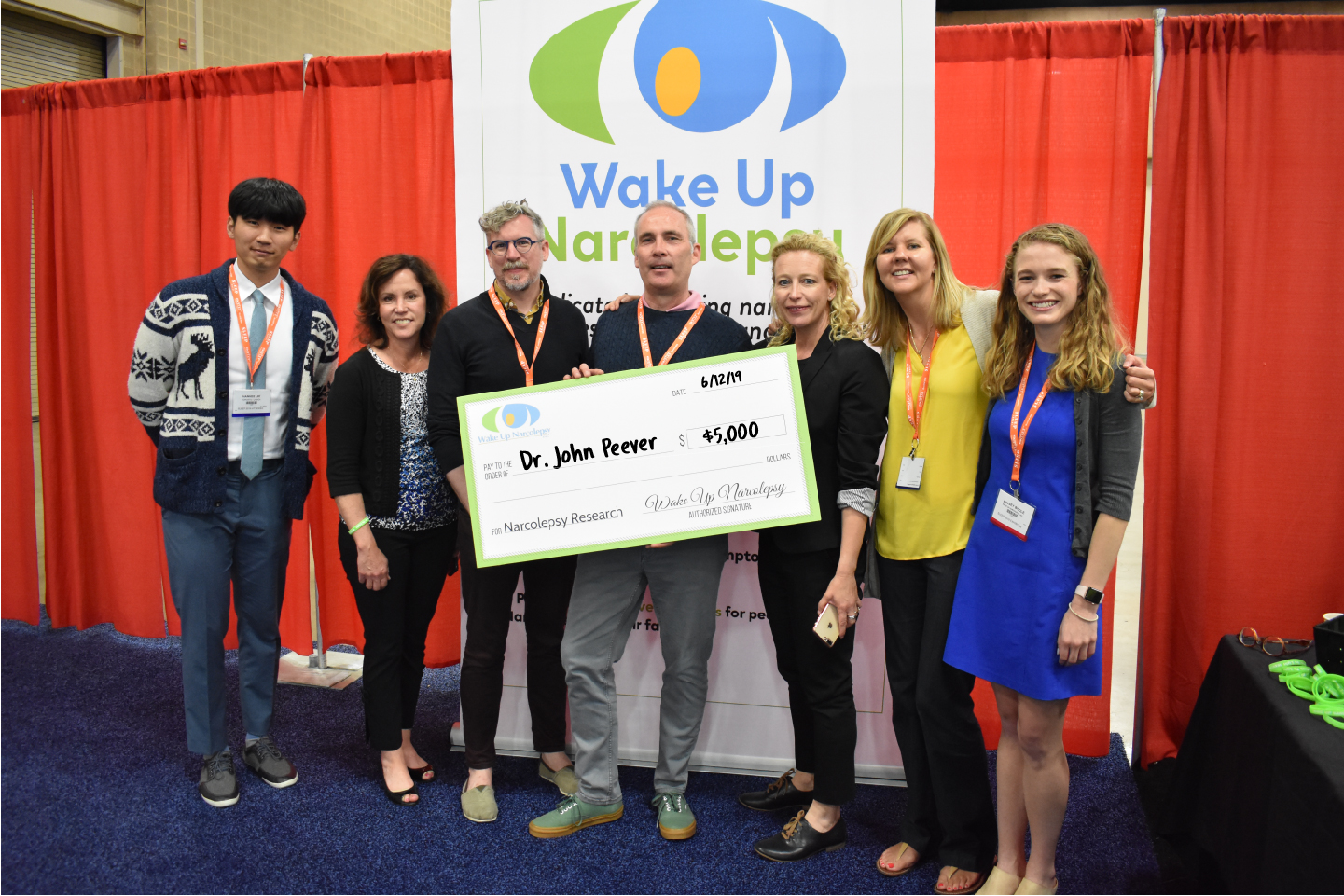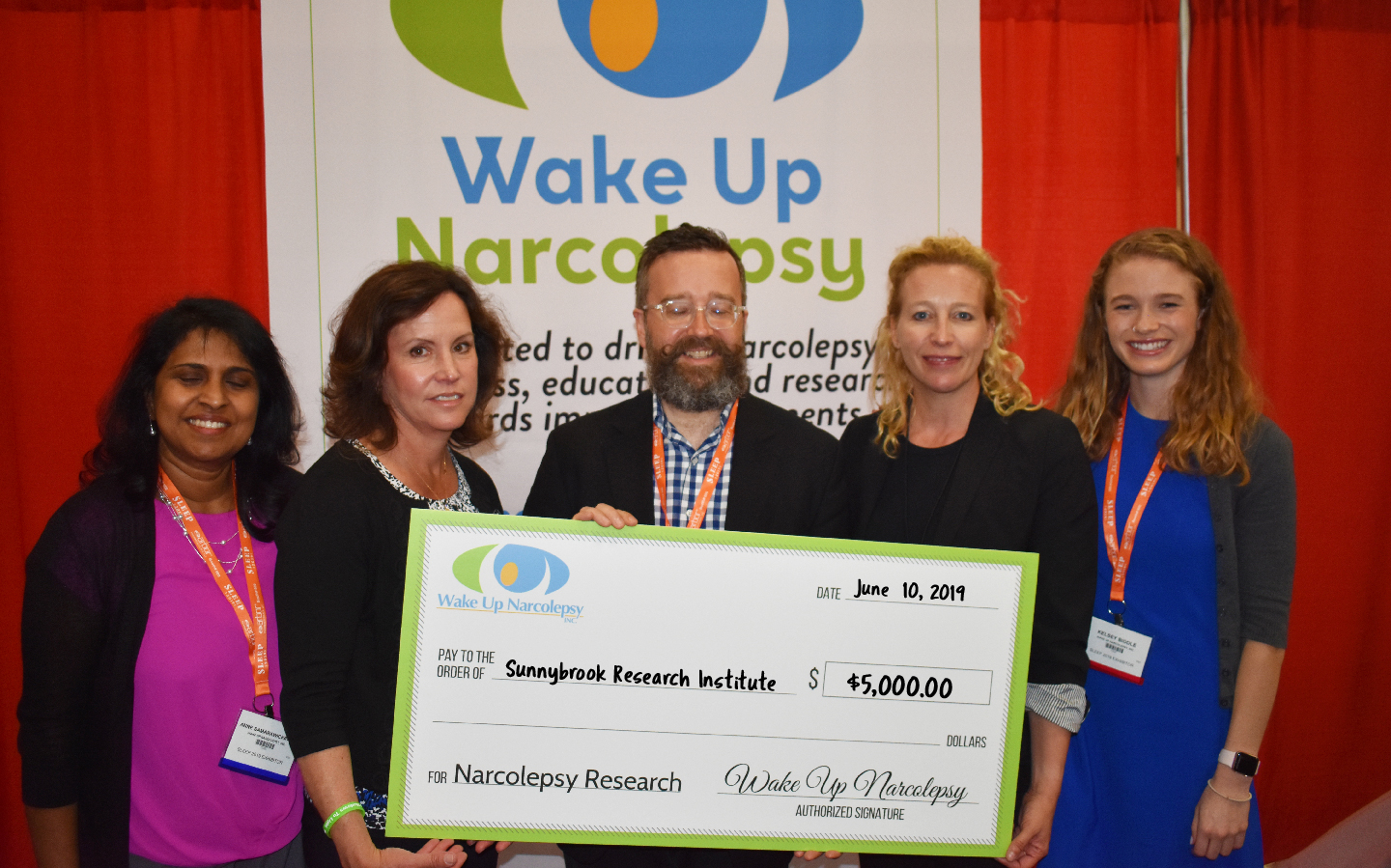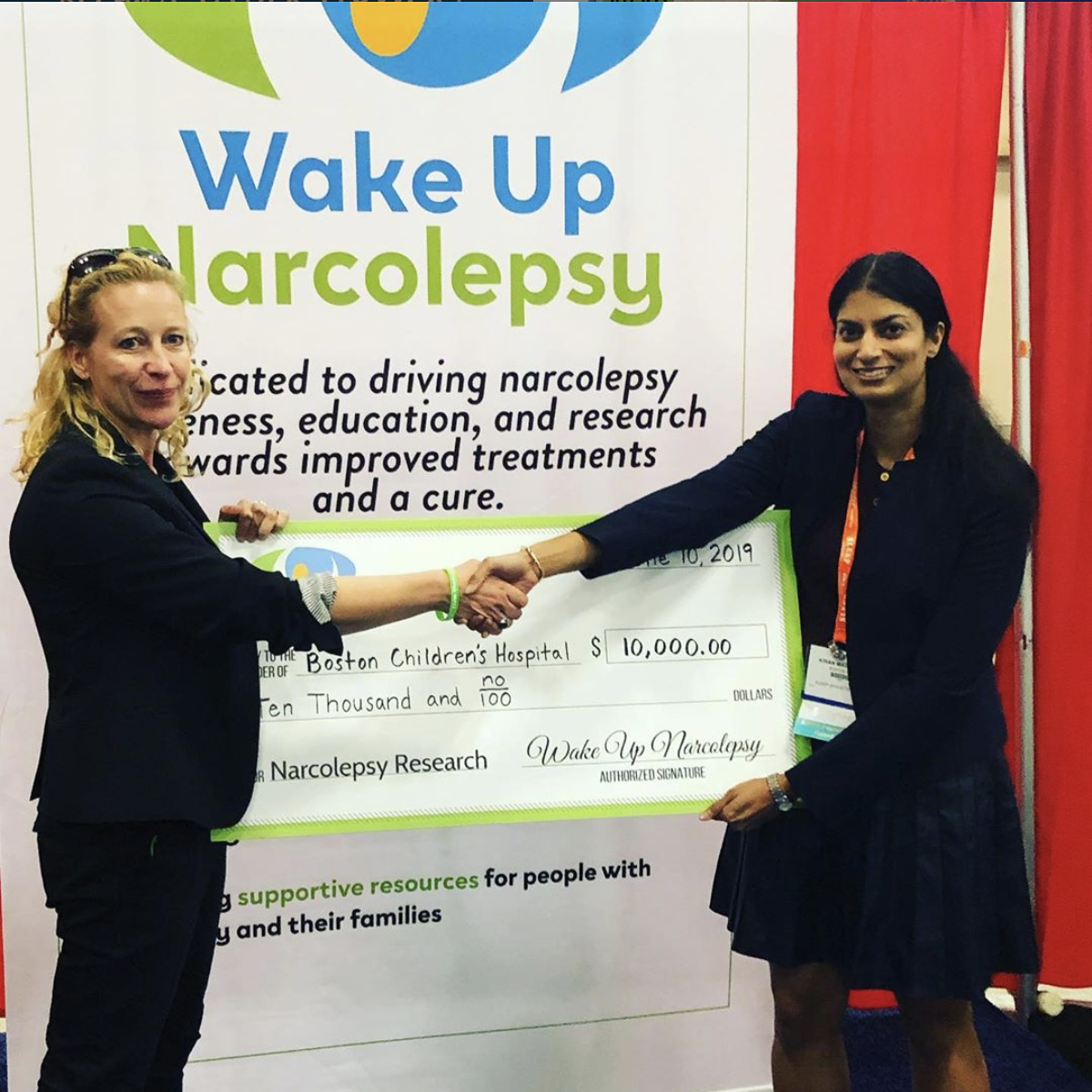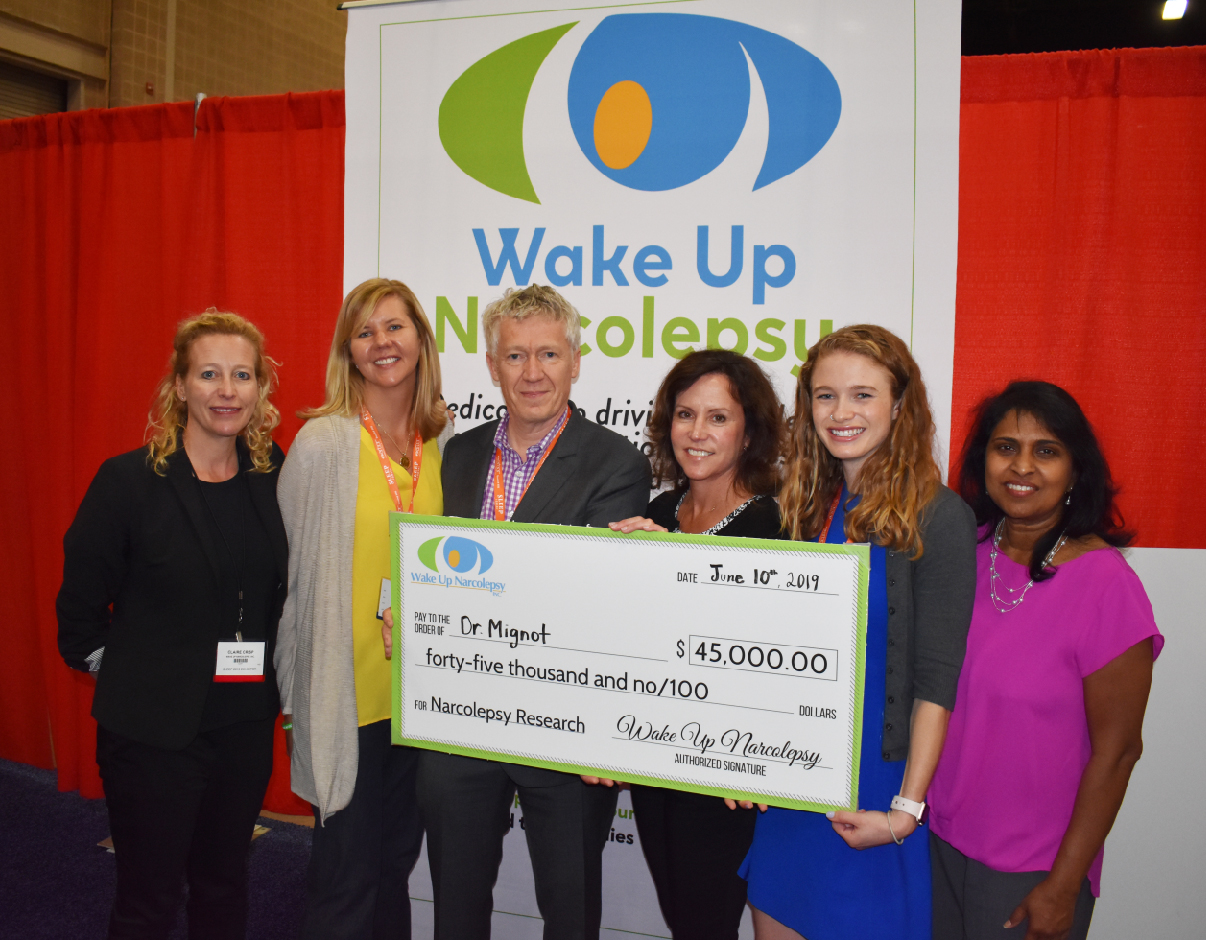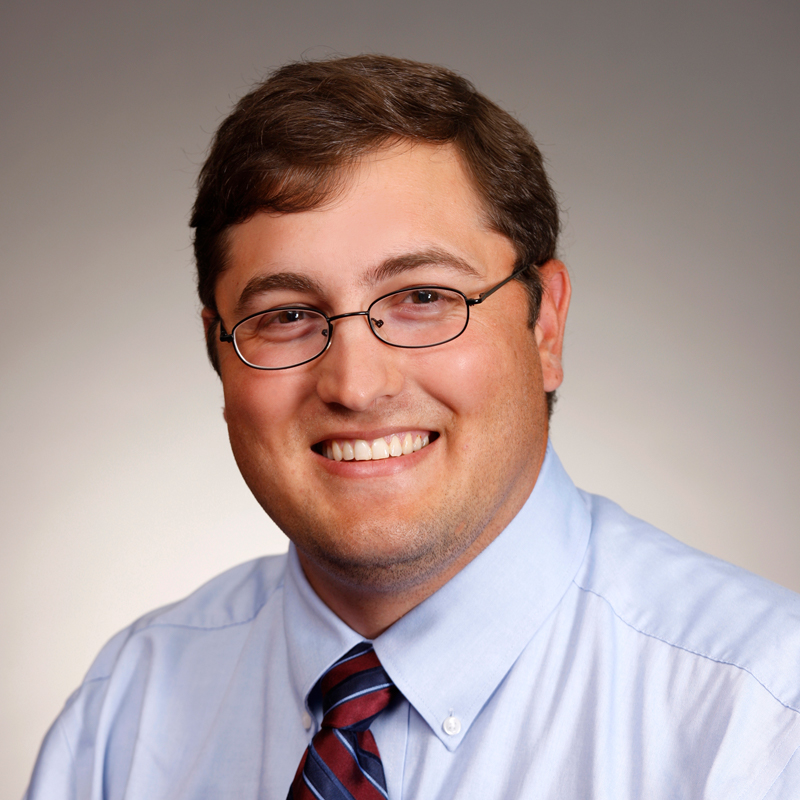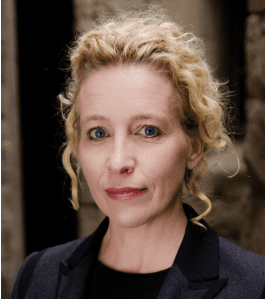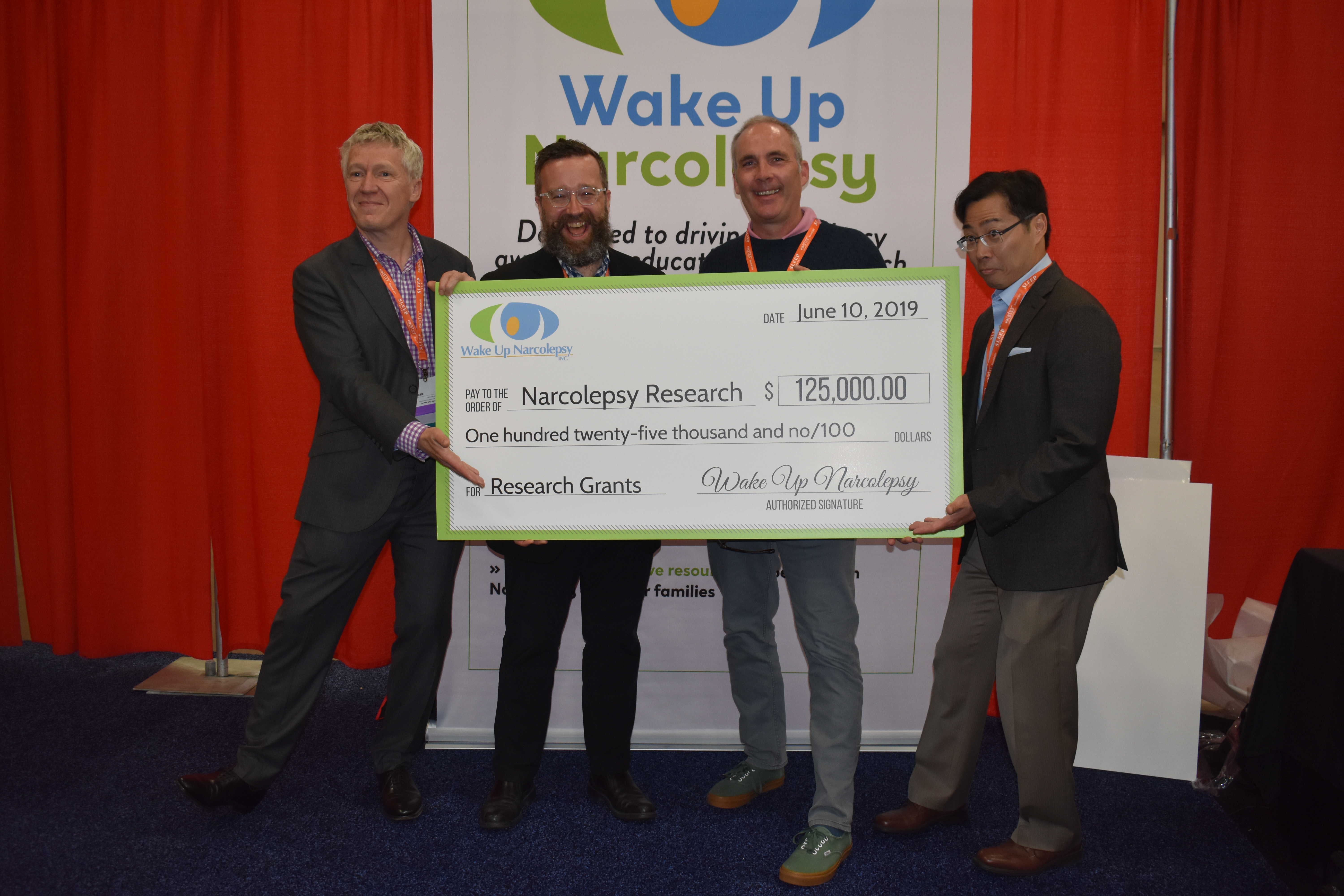
Jun 26 2019
Wake Up Narcolepsy Attends the AASM and Awards $125,000 to Narcolepsy Research
h in News
WUN attended the annual American Association of Sleep Medicine conference where we awarded $125,000 to leading narcolepsy researchers. Sleep 2019 took place in San Antonio, Texas to advance the science and clinical practice of sleep medicine and learn about cutting edge research in narcolepsy. As a patient advocacy organization, we met with clinicians, researchers and stakeholders to share our programs, events and services for people with narcolepsy.
Highlights included meeting with new health care partners and the recipients of the Wake Up Narcolepsy 2019 research grant awards. The funds recently raised by our generous donors, through the efforts of our 2019 Boston Marathon team and our Seattle Giving Campaign ensure the continuation of existing research at Harvard and Stanford and new projects by narcolepsy specialists elsewhere in the USA and in Canada.
The scale of these awards reflects the hard work of our organization, the dedication of our community and the generosity of our donors. With over $700,000 raised by WUN in the last 10 years, we are grateful to be in a position to make a significant impact on narcolepsy research by supporting ongoing projects and driving new initiatives. Partnering with our leading researchers places WUN in a unique position–by supporting and directing narcolepsy research that reflects the patient agenda.
2019 Research Grant Recipients
Dr. John Peever
Professor, University of Toronto
Director Centre for Biology Timing and Cognition
VP Research of Canadian Sleep Society
Awarded $5,000 research grant. His research aims to understand how the brain generates and regulates behavioral arousal states. His research team uses optogenetic and pharmacogenetic methods to dissect the brain circuitry controlling behavioral arousal states, particularly sleep. This work will not only identify the pathways that trigger sleep and wakefulness, it will also be invaluable in understanding how breakdown in brain circuits contributes to sleep disorders such as narcolepsy and REM sleep behavior disorder.

Jason Ong, PhD, Neurology/Sleep Disorders
Dr. Jason Ong
Associate Professor in the Department of Neurology and the Center for Circadian and Sleep Medicine at the Northwestern University Feinberg School of Medicine
Dr. Jason Ong was awarded a $5,000 research grant. Dr. Ong is dedicated to improving sleep through research, with a focus on non-pharmacological interventions for insomnia and other sleep disorders. The research interests of our lab include innovative approaches to treatment with a focus on patient perspectives, mind body focused interventions for disorders of sleep and arousal and examining sleep disturbances in the context of other psychological and physical parameters such as cognition, stress, and metabolic syndrome.
Dr. Brian Murray
Associate Professor, Neurology and Sleep Medicine University of Toronto
Chair, Royal College Specialty Committee in Neurology
Head, Division of Neurology and Chair, Research Ethics Board
Sunnybrook Health Sciences Center
Dr. Brian Murray was awarded a $5,000 research grant. Dr. Murray’s major research interests are in neurological aspects of sleep and the relationship between sleep and behavior. Some clinical conditions of particular interest include narcolepsy, rapid eye movement sleep behavior disorder, restless legs syndrome and the effects of sleep and sleep disorders in other medical conditions.
His team is also developing tools for the early diagnosis of neuropsychiatric disorders and for the endophenotyping of various conditions. Their premise is that during sleep the brain is relatively isolated from its environment and therefore more “objective” with various physiologic parameters, reflecting a baseline level of neurochemical activity.

Professor of Neurology, Harvard Medical School
Physician, Professor, Department of Neurology, Beth Israel Deaconess Medical Center
Physician, Professor, Department of Neurobiology, Children’s Hospital Boston
Dr. Thomas Scammel was awarded a $45,000 research grant. Dr. Scammel focuses on the neurobiology of narcolepsy. Narcolepsy is caused by destruction of the hypothalamic neurons that make the neuropeptides orexin/hypocretin. Using optogenetics, chemogenetics, conditional tracing and photometry, we are now identifying the critical pathways through which orexins promotes wakefulness and suppresses cataplexy. We also are studying the interactions of sleep with traumatic brain injury and pain. Through these experiments, we hope to gain a detailed understanding of the neurobiology of orexins and other brain pathways that will result in highly effective therapies for patients with narcolepsy and enhance our knowledge of sleep.
Dr. Kiran Maski
Boston Children’s Hospital
Director, Sleep Clinic, Department of Neurology
Assistant Professor of Neurology, Harvard Medical School
Dr. Kiran Maski was awarded a $10,000 research grant. Dr. Maski is passionate about improving diagnostic delays and she has developed a screening tool to identify children and adolescents with narcolepsy and idiopathic hypersomnia in the community. With this tool, she hopes to bring awareness about CNS hypersomnia conditions to children, parents, teachers, school nurses, and healthcare providers.

Director, Sleep Medicine SickKids Toronto
Staff Respirologist, Division of Respiratory Medicine
Associate Scientist, Translational Medicine
Assistant Professor, Paediatrics, University of Toronto
Dr. Indra Narang was awarded a $5,000 research grant. Dr. Narang’s research mainly focuses on the diagnosis and optimal management, as well as the cardiovascular, metabolic, and neurocognitive consequences of sleep disorders in children. Sleep disorders encompass a variety of conditions, ranging from teenagers who have chronic sleep deprivation to very young children and teenagers who have obstructive sleep apnea. Sleep disorders, whether it be sleep deprivation or sleep apnea, can affect most of the physiological systems of the body, and treatment can have a significant positive impact not only on the child’s physical health, but mental health and wellbeing.
Dr. Emmanuel Mignot
Director, Psychiatry & Behavioral Science – Stanford Center for Sleep Sciences and Medicine
Professor, Psychiatry and Behavioral Sciences – Stanford Center for Sleep Sciences and Medicine
Dr. Emmanuel Mignot was awarded a $45,000 research grant. Dr. Mignot current research focuses on the neurobiology, genetics and immunology of narcolepsy, a disorder caused by hypocretin (orexin) cell loss, with indirect interest in the neuroimmunology of other brain disorders. His laboratory uses state of the art human genetics techniques, such as genome wide association, exome or whole genome sequencing in the study of human sleep and sleep disorders, with parallel studies in animal models. His laboratory is also interested in web-based assessments of sleep disorders, computer-based processing of polysomnography (PSG), and outcomes research.
Dr. David G. Ingram
Children’s Mercy Kansas City
Pediatrics, Sleep Medicine
Assistant Professor of Pediatrics, University of Missouri-Kansas City School of Medicine
Dr. David Ingram was awarded a $5,000 research grant. Dr. Ingram is currently pioneering a new project on the multi-disciplinary approach to treating children with narcolepsy.
I would like to thank our donors, board of directors and the Boston Marathon Teams who passionately committed to advancing the needs of our community.
Congratulations to all the grant recipients!
Claire Crisp
Executive Director
